Description
Intra-Cellular Cleanse – Bromine Immune Support
Intra-cellular cleanse with high Bromine to support immunity:
Support Natural Killer Cells with Bromine. Bromine, if available in the body, is your cells first choice to support NK Cells and in-turn white blood cells to scavenge for invaders. It is important to support and cleanse the drainage pathways on a cellular level before engaging in a parasite cleanse.
Ingredients: Bladderwrack, Sea Moss, Black Cumin Seed, Maitake Mushrooms, Resveratrol, Quercetin, Graviola Leaf
Quantity: 50 Grams
Serving Size: 1-2 tsp
Directions: add 1-2 tsp to water, juice or smoothie 1-2x per day for 7-14 days
🌿 Bladderwrack:
-
High Iodine Content: Bladderwrack is one of the richest natural sources of iodine, essential for the production of thyroid hormones (T3 and T4) which regulate metabolism at the cellular level. Proper thyroid function is crucial for cellular energy production, growth, and repair.
-
Antioxidant Properties: Contains compounds like phlorotannins, fucoxanthin, and various vitamins (A, C, and E) that act as antioxidants. These help in reducing oxidative stress by neutralizing free radicals, potentially preventing cellular damage, aging, and decreasing the risk of chronic diseases.
-
Anti-inflammatory Effects: The seaweed includes fucoidans and other sulfated polysaccharides, which have been studied for their anti-inflammatory capabilities. Reducing inflammation can prevent or mitigate cellular damage in conditions like arthritis or other inflammatory diseases.
-
Cellular Protection and Repair: Fucoxanthin and other antioxidants in bladderwrack protect cells from oxidative damage. This can lead to improved cellular integrity, function, and potentially longevity by aiding in cellular repair processes.
-
Immune Modulation: Polysaccharides like fucoidan may enhance immune response by stimulating immune cells like macrophages and T-cells, which can help in defending against pathogens at the cellular level.
-
Detoxification: Alginic acid, a type of fiber in bladderwrack, can bind to toxins and heavy metals, aiding in their removal from the body, which indirectly benefits cellular health by reducing the toxic load on cells.
-
Mitochondrial Health: The antioxidants in bladderwrack might support mitochondrial function, crucial for energy production within cells, by reducing oxidative damage to these organelles.
-
Skin Health: With its antioxidants and minerals, bladderwrack supports skin cell health, potentially aiding in skin repair, reducing signs of aging, and protecting against environmental damage at the cellular level.
-
Digestive Health: The fiber content, including alginic acid, can promote a healthy digestive tract environment, which is vital for nutrient absorption and thus for cellular nourishment.
-
Potential Anti-cancer Activity: Some research indicates that fucoidan might have cytotoxic effects on cancer cells, inducing apoptosis while not harming healthy cells. However, this is largely from in vitro and animal studies, requiring more human research for confirmation.
-
Cardiovascular Health: By possibly reducing cholesterol levels and improving circulation due to its antioxidant and anti-inflammatory effects, bladderwrack could support vascular health at the cellular level.
🌱 Irish Sea Moss:
-
Rich in Antioxidants: Irish Sea Moss contains antioxidants like vitamins A, C, and E, which are vital for reducing oxidative stress. Antioxidants help to neutralize free radicals, thus protecting cells from damage, aging, and disease.
-
Anti-inflammatory Properties: The polysaccharides in sea moss, particularly carrageenan, have been studied for their potential to reduce inflammation. By modulating the inflammatory response, sea moss can help prevent cellular damage that’s associated with chronic inflammation.
-
Nutrient Dense: Sea moss is a source of numerous minerals like iodine, calcium, magnesium, potassium, and zinc, which are crucial for various cellular functions including enzyme activity, DNA synthesis, and cell membrane integrity.
-
Iodine for Thyroid Health: Iodine from sea moss supports thyroid function, which is integral for metabolism regulation at the cellular level. Proper thyroid hormone levels ensure cells receive adequate energy for optimal functioning.
-
Prebiotic Effects: Sea moss provides dietary fiber that can serve as a prebiotic, feeding beneficial gut bacteria. A healthy gut microbiome influences cellular health throughout the body via the gut-cell axis, impacting immune function, inflammation, and nutrient absorption.
-
Cellular Repair and Detoxification: The high mineral and vitamin content, including sulfur, which is known for aiding in detoxification, might support cellular repair mechanisms. Sulfur compounds can help in detoxifying the body by binding to heavy metals and other toxins, potentially reducing cellular stress.
-
Immune System Support: By providing a range of vitamins and minerals, sea moss can bolster the immune system, enhancing the body’s ability to defend against cellular invaders like viruses or bacteria, thereby maintaining cellular health.
-
Skin Health: Although more related to topical use, the nutrients in sea moss can promote skin cell health by providing nourishment, hydration, and possibly aiding in the healing process of skin cells when used in skincare products.
-
Neuroprotection: While direct evidence in humans is limited, the antioxidant and anti-inflammatory properties of sea moss might offer some neuroprotective benefits by reducing oxidative stress and inflammation in neuronal cells.
-
Potential Anti-cancer Effects: Some studies suggest that sea moss components might have cytotoxic effects on cancer cells, promoting apoptosis in these cells while sparing healthy ones, although this is primarily from in vitro or animal studies.
🍄 Maitake Mushroom:
-
Immune System Support: Maitake contains beta-glucans, particularly the D-fraction, which have potent immunomodulatory effects. These compounds stimulate various immune cells like macrophages, T-cells, and natural killer cells, enhancing the body’s ability to fight infections and possibly cancer at the cellular level. This immune enhancement can lead to better defense against pathogens and cellular repair.
-
Antioxidant Activity: Maitake mushrooms are rich in antioxidants like ergothioneine and polysaccharides that help combat oxidative stress. By neutralizing free radicals, these antioxidants protect cells from damage, which is crucial for maintaining cellular health and preventing aging or disease.
-
Anti-cancer Potential: Research suggests that maitake can inhibit tumor growth and metastasis. The beta-glucans in maitake may induce apoptosis in cancer cells while protecting healthy cells. This selective cytotoxicity is potentially due to the activation of immune responses against cancer cells and the direct inhibition of cancer cell proliferation.
-
Anti-inflammatory Effects: The presence of various bioactive compounds in maitake can reduce inflammation at the cellular level by modulating cytokine production and other inflammatory mediators. This can be particularly beneficial in preventing chronic inflammation, which is linked to numerous diseases including heart disease and cancer.
-
Cellular Metabolism and Blood Sugar Regulation: Maitake has been studied for its ability to improve insulin sensitivity and glucose metabolism, which supports cellular health by ensuring that cells receive adequate energy without the damaging effects of high blood sugar levels.
-
Liver Health: There’s evidence suggesting that maitake can support liver function by reducing oxidative stress and inflammation. This protective effect at the cellular level can aid in liver regeneration and detoxification processes.
-
Cardiovascular Health: By possibly lowering cholesterol and triglycerides, maitake supports the health of vascular cells, reducing the risk of atherosclerosis and improving blood flow, which is fundamental for cellular oxygenation and nutrient supply.
-
Neuroprotection: Although less studied, the antioxidant and anti-inflammatory properties of maitake might offer some neuroprotective benefits, potentially aiding in the prevention of neuronal damage.
-
Gut Health: Maitake contains prebiotic fibers that can promote the growth of beneficial gut bacteria, which in turn can influence cellular health systemically through improved digestion, nutrient absorption, and immune function.
🍇 Resveratrol:
-
Antioxidant Properties: Resveratrol acts as an antioxidant, helping to neutralize free radicals, which can damage cells and contribute to aging and disease. It can enhance the body’s own antioxidant defenses by activating genes that produce antioxidant enzymes.
-
Anti-inflammatory Effects: Resveratrol can modulate inflammatory responses by inhibiting the production of pro-inflammatory cytokines and enzymes like cyclooxygenase-2 (COX-2). This has implications for reducing cellular damage caused by chronic inflammation.
-
Cellular Longevity: Resveratrol is known to activate sirtuins, a family of proteins involved in regulating cellular health and longevity. Sirtuin activation, particularly SIRT1, can lead to enhanced DNA repair, improved mitochondrial function, and increased resistance to stress, which are all associated with longer cellular life.
-
Autophagy Induction: Resveratrol promotes autophagy, the process where cells degrade and recycle their own components, which is crucial for cellular cleanup and maintenance. This can help prevent or mitigate conditions associated with protein aggregation or cellular debris, like neurodegenerative diseases.
-
Apoptosis Regulation: In cancer cells, resveratrol can induce apoptosis (programmed cell death), helping to eliminate abnormal cells. However, in healthy cells, it might also protect against apoptosis, offering a protective effect against stress-induced cell death.
-
Mitochondrial Function: There’s evidence that resveratrol can improve mitochondrial function, reducing oxidative stress within these organelles, which are the cell’s energy producers. This can lead to better cellular energy balance and health.
-
DNA Protection: Resveratrol has been shown to protect DNA from oxidative damage, potentially reducing mutation rates and cancer risk. It can also enhance DNA repair mechanisms, contributing to genetic stability.
-
Cardiovascular Health at Cellular Level: Resveratrol can improve endothelial function, reduce platelet aggregation, and decrease oxidative stress in vascular cells, all of which are beneficial for cardiovascular health by maintaining the integrity and function of blood vessels.
-
Neuroprotection: By reducing neuroinflammation, enhancing neuronal survival pathways, and possibly clearing toxic protein aggregates, resveratrol shows potential in protecting neurons, which might be beneficial in neurodegenerative diseases.
-
Metabolic Regulation: At the cellular level, resveratrol can improve insulin sensitivity, regulate lipid metabolism, and influence genes involved in metabolism, which could have implications for managing or preventing metabolic disorders like diabetes.
🍏 Quercetin:
-
Antioxidant Protection: Quercetin acts as a potent antioxidant, scavenging free radicals and preventing oxidative damage to cellular components like DNA, proteins, and lipids. This can help reduce the risk of cellular aging and related diseases.
-
Anti-inflammatory Effects: Quercetin can inhibit the production and activity of pro-inflammatory cytokines and enzymes like cyclooxygenase (COX) and lipoxygenase (LOX). This modulation of inflammation at the cellular level can benefit conditions linked with chronic inflammation, potentially preventing cellular damage.
-
Cellular Protection: By reducing oxidative stress, quercetin can protect various cell types, including neurons, cardiomyocytes, and hepatocytes, from damage. Its protective effects extend to conditions like ischemia-reperfusion injury, where cells might otherwise die due to lack of oxygen or nutrient supply followed by sudden restoration.
-
Apoptosis Regulation: Quercetin has shown to regulate cell death pathways. While it can promote apoptosis in cancer cells by altering key pathways (like p53 and Bcl-2), it might protect normal cells from apoptosis under stress conditions, suggesting a dual role in cellular health maintenance.
-
Mitochondrial Function: There’s evidence suggesting quercetin can enhance mitochondrial function, crucial for cellular energy production. By improving mitochondrial efficiency and reducing oxidative damage to mitochondria, quercetin supports cellular vitality and reduces the risk of mitochondrial-related diseases.
-
Autophagy Modulation: Quercetin can induce or enhance autophagy, the process by which cells remove damaged components or dysfunctional organelles. This self-cleaning mechanism is vital for cellular health and longevity, potentially reducing the accumulation of cellular debris that can lead to diseases like cancer or neurodegeneration.
-
DNA Protection: Quercetin can help protect DNA from oxidative damage, which is linked to mutations and cancer development. By stabilizing DNA, quercetin might play a role in preventing or slowing down cancer progression at the cellular level.
-
Immune System Support: Quercetin has immunomodulatory effects, enhancing the activity of immune cells like macrophages and T-lymphocytes, which can improve the body’s defense against infections and possibly help in regulating autoimmune responses.
-
Cardiovascular Health: At the cellular level, quercetin can benefit endothelial cells by improving their function, reducing oxidative stress, and inhibiting platelet aggregation, which are crucial for maintaining vascular health and preventing atherosclerosis.
🌾 Black Cumin Seeds:
- Antioxidant Effects: Black cumin seeds are rich in antioxidants, including thymoquinone, which helps protect cells from oxidative stress. This can lead to reduced damage from free radicals, which are implicated in aging and many chronic diseases. Antioxidants in black cumin seeds like carvacrol, thymol, and tocopherols contribute to cellular repair and protection. 1
- Anti-inflammatory Properties: Thymoquinone and other compounds in black cumin seeds have been shown to modulate inflammatory pathways, reducing the production of pro-inflammatory cytokines. This can help in conditions where inflammation leads to cellular damage, like in autoimmune diseases or chronic inflammation. 2, 3
- Cellular Protection and Repair: Research indicates that black cumin seeds can enhance cellular repair mechanisms. They may stimulate cell proliferation and DNA repair, potentially aiding in the recovery from cellular damage. This includes protective effects against liver and kidney damage by reducing lipid peroxidation and enhancing antioxidant enzyme activities. 4
- Apoptotic Effects on Cancer Cells: Several studies suggest that black cumin seeds can induce apoptosis (programmed cell death) in cancer cells, specifically targeting cancer cells while showing less harm to normal cells. This selective cytotoxicity is particularly noted for the thymoquinone component. 5
- Immune System Modulation: Black cumin seeds are known to have immunomodulatory effects, potentially enhancing the body’s immune response at the cellular level. This includes enhancing the activity of immune cells like T-lymphocytes, which are crucial for immune defense. 6, 7
- Metabolic Health: By improving insulin sensitivity and glucose metabolism, black cumin seeds can support cellular health in metabolic contexts, which could help prevent cellular dysfunction associated with diabetes or metabolic syndrome. 8, 9
- Neuroprotection: There’s some evidence suggesting that black cumin seeds might offer neuroprotective effects, potentially through antioxidant and anti-inflammatory mechanisms, which could benefit neuronal cells by protecting them from oxidative damage or inflammation-related neurodegeneration. 10
- Antimicrobial Activity: The seeds show activity against various pathogens, which can indirectly benefit cellular health by reducing infections that might stress or damage cells. 11
🌿 Graviola Leaf
- Potential Anticancer Activity: Various studies have explored the cytotoxic effects of graviola leaf extracts on cancer cells, suggesting that they might induce apoptosis (programmed cell death) in cancer cells without harming healthy cells. However, these findings predominantly come from in vitro and animal studies, and human clinical trials are needed to confirm these effects. 3, 4
- Immune System Support: The antioxidant and anti-inflammatory properties of graviola leaves are believed to contribute to a stronger immune response, which is crucial for cellular health. This includes support against pathogens and possibly aiding in the body’s defense mechanisms.
- Detoxification and Cellular Protection: The leaves may aid in natural detoxification processes, which can indirectly benefit cellular health by removing toxins and reducing cellular stress. This could lead to improved organ function and overall cellular integrity.
Synergistic Health Benefits:
Comprehensive Immune Support: The combination of all these ingredients provides layered immune support from different angles, enhancing the body’s ability to resist and recover from illnesses.
Enhanced Detoxification: Bladderwrack and Irish Sea Moss together could boost the body’s natural detox processes by supporting liver function and aiding gut health.
Improved Metabolic Health: With thyroid support from bladderwrack, blood sugar regulation from Maitake and black cumin seeds, plus the metabolic benefits of resveratrol, this blend can optimize metabolic functions.
Antioxidant Powerhouse: Each of these ingredients brings its own set of antioxidants, working in concert to shield against oxidative damage, potentially extending cellular health and longevity.
Cardiovascular Synergy: The cardiovascular benefits of quercetin, resveratrol, and Maitake can be amplified when combined, offering robust protection for heart health.
When incorporating these into your diet or supplement routine, remember to consider potential interactions with existing medications or health conditions. Always consult with a healthcare provider for personalized advice.

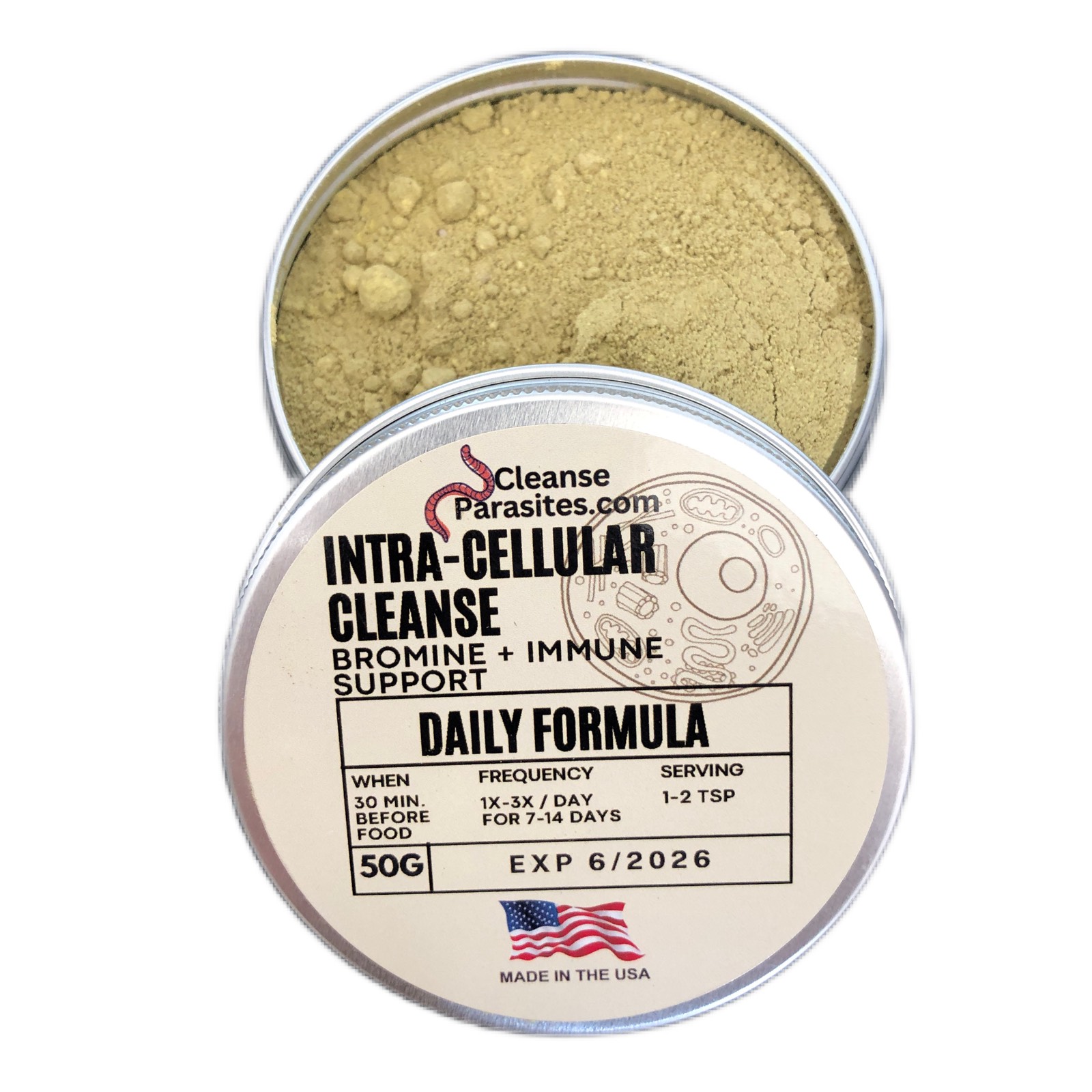
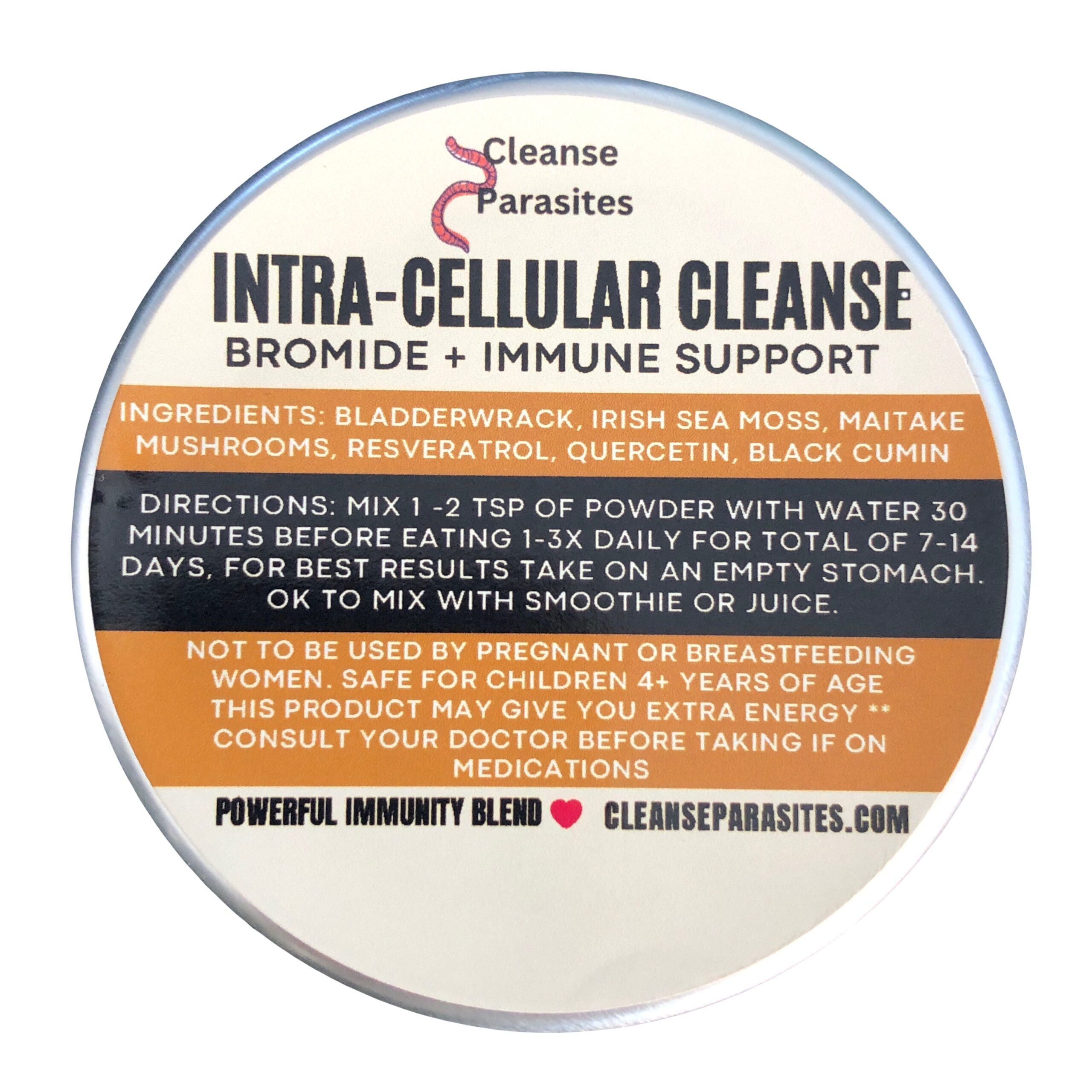
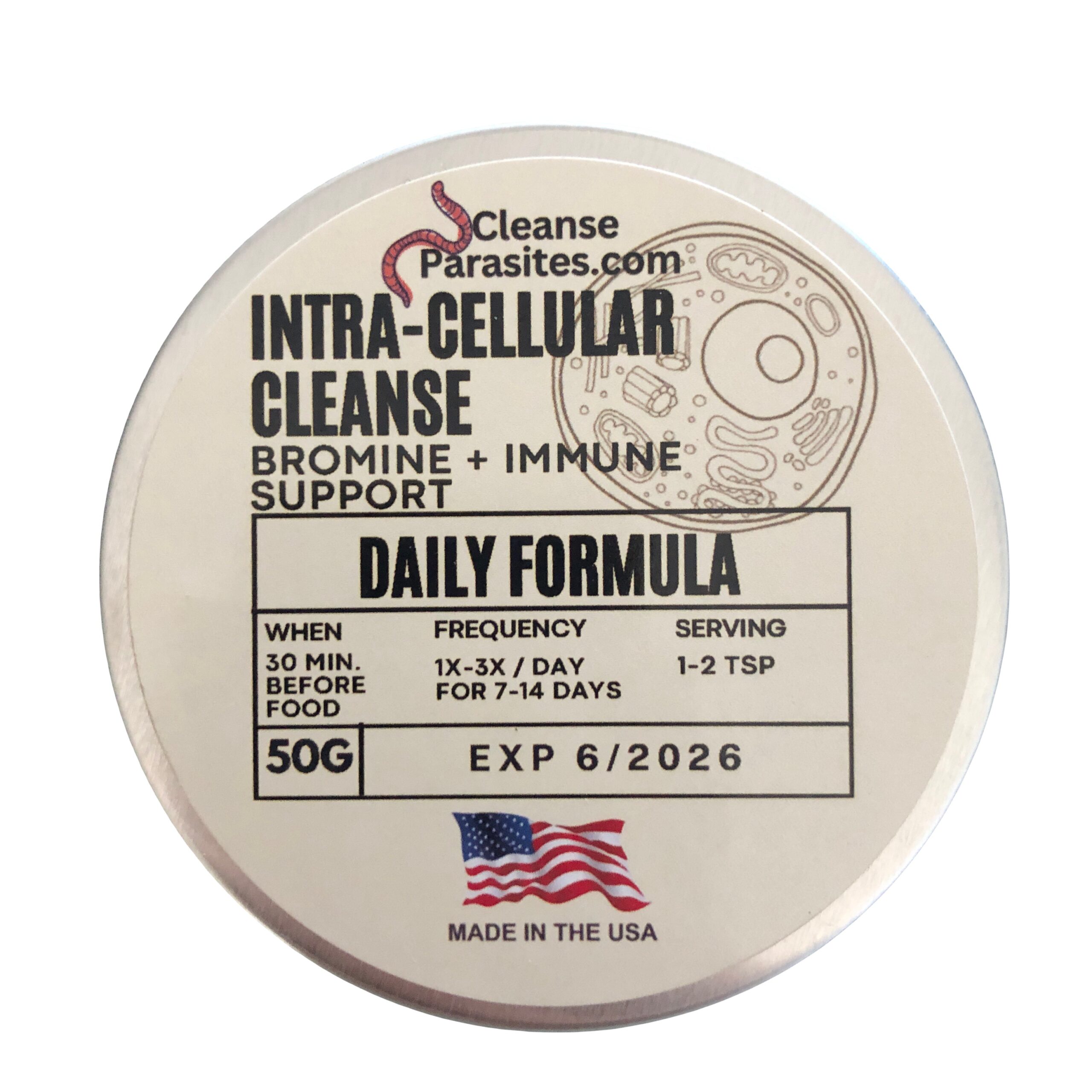
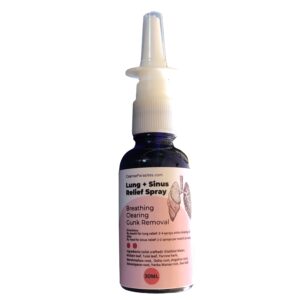
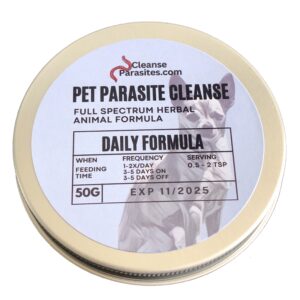
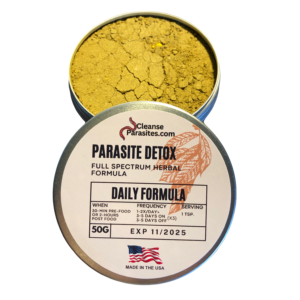
Reviews
There are no reviews yet.